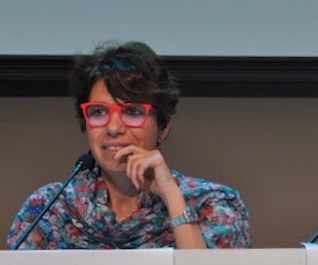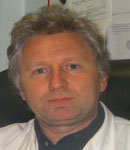Studying at the University of Verona
Here you can find information on the organisational aspects of the Programme, lecture timetables, learning activities and useful contact details for your time at the University, from enrolment to graduation.
Academic calendar
The academic calendar shows the deadlines and scheduled events that are relevant to students, teaching and technical-administrative staff of the University. Public holidays and University closures are also indicated. The academic year normally begins on 1 October each year and ends on 30 September of the following year.
Course calendar
The Academic Calendar sets out the degree programme lecture and exam timetables, as well as the relevant university closure dates..
| Period | From | To |
|---|---|---|
| LMSIO BZ - 2° ANNO 1° SEM. | Oct 3, 2019 | Feb 8, 2020 |
| LMSIO BZ - 1° ANNO 1° SEM. | Nov 14, 2019 | Mar 14, 2020 |
| LMSIO BZ - 1° ANNO 2° SEM. | Apr 16, 2020 | Jun 27, 2020 |
| LMSIO BZ - 2° ANNO 2° SEM. | Apr 16, 2020 | Jun 27, 2020 |
| Session | From | To |
|---|---|---|
| Sessione invernale 2° anno Lm Sio Bz | Mar 2, 2020 | Mar 30, 2020 |
| Sessione invernale 1° anno Lm Sio Bz | Mar 16, 2020 | Apr 9, 2020 |
| Sessione estiva Lm Sio Bz | Jul 1, 2020 | Jul 31, 2020 |
| Sessione autunnale Lm Sio Bz | Sep 1, 2020 | Sep 30, 2020 |
| Session | From | To |
|---|---|---|
| Prima sessione Lm Sio Bz | Jun 15, 2020 | Sep 15, 2020 |
| Seconda sessione Lm Sio Bz | Nov 16, 2020 | Jan 15, 2021 |
| Terza sessione Lm Sio Bz | Mar 1, 2021 | Apr 30, 2021 |
| Period | From | To |
|---|---|---|
| FESTIVITA' OGNISSANTI | Nov 1, 2019 | Nov 1, 2019 |
| FESTIVITA' IMMACOLATA CONCEZIONE | Dec 8, 2019 | Dec 8, 2019 |
| Vacanze di Natale | Dec 23, 2019 | Jan 6, 2020 |
| VACANZE DI PASQUA | Apr 10, 2020 | Apr 15, 2020 |
| Festa della liberazione | Apr 25, 2020 | Apr 25, 2020 |
| Festa del lavoro | May 1, 2020 | May 1, 2020 |
| Lunedì di Pentecoste | Jun 1, 2020 | Jun 1, 2020 |
| FESTA DELLA REPUBBLICA | Jun 2, 2020 | Jun 2, 2020 |
| Vacanze estive | Aug 10, 2020 | Aug 23, 2020 |
| Description | Period | From | To |
|---|---|---|---|
| Stage 2° anno Lm Sio Bz | Stage 2° anno Lm Sio Bz | Jul 1, 2020 | Nov 27, 2020 |
Exam calendar
Exam dates and rounds are managed by the relevant Medicine Teaching and Student Services Unit.
To view all the exam sessions available, please use the Exam dashboard on ESSE3.
If you forgot your login details or have problems logging in, please contact the relevant IT HelpDesk, or check the login details recovery web page.
Should you have any doubts or questions, please check the Enrollment FAQs
Academic staff
 jessica.bertolani@univr.it
jessica.bertolani@univr.it
 anita.bevilacqua@apss.tn.it
anita.bevilacqua@apss.tn.it
 alvisa.palese@dstb.uniud.it
alvisa.palese@dstb.uniud.it
 loredana.pancheri@univr.it
loredana.pancheri@univr.it
 annalisa.pennini@gmail.com
annalisa.pennini@gmail.com
 0471067355
0471067355
Study Plan
The Study Plan includes all modules, teaching and learning activities that each student will need to undertake during their time at the University.
Please select your Study Plan based on your enrollment year.
1° Year
| Modules | Credits | TAF | SSD |
|---|
2° Year activated in the A.Y. 2020/2021
| Modules | Credits | TAF | SSD |
|---|
| Modules | Credits | TAF | SSD |
|---|
| Modules | Credits | TAF | SSD |
|---|
Legend | Type of training activity (TTA)
TAF (Type of Educational Activity) All courses and activities are classified into different types of educational activities, indicated by a letter.
Career prospects
Module/Programme news
News for students
There you will find information, resources and services useful during your time at the University (Student’s exam record, your study plan on ESSE3, Distance Learning courses, university email account, office forms, administrative procedures, etc.). You can log into MyUnivr with your GIA login details: only in this way will you be able to receive notification of all the notices from your teachers and your secretariat via email and soon also via the Univr app.
Gestione carriere
Stage
Documents
| Title | Info File |
|---|---|
|
|
pdf, it, 543 KB, 05/10/22 |
|
|
msword, it, 198 KB, 23/06/21 |
|
|
octet-stream, it, 1297 KB, 05/10/22 |
|
|
octet-stream, it, 1297 KB, 05/10/22 |
|
|
octet-stream, it, 1324 KB, 05/10/22 |
|
|
octet-stream, it, 1323 KB, 05/10/22 |
|
|
msword, it, 44 KB, 23/06/21 |
|
|
msword, it, 104 KB, 23/06/21 |
|
|
pdf, it, 111 KB, 10/01/24 |
|
|
pdf, it, 110 KB, 14/02/24 |








